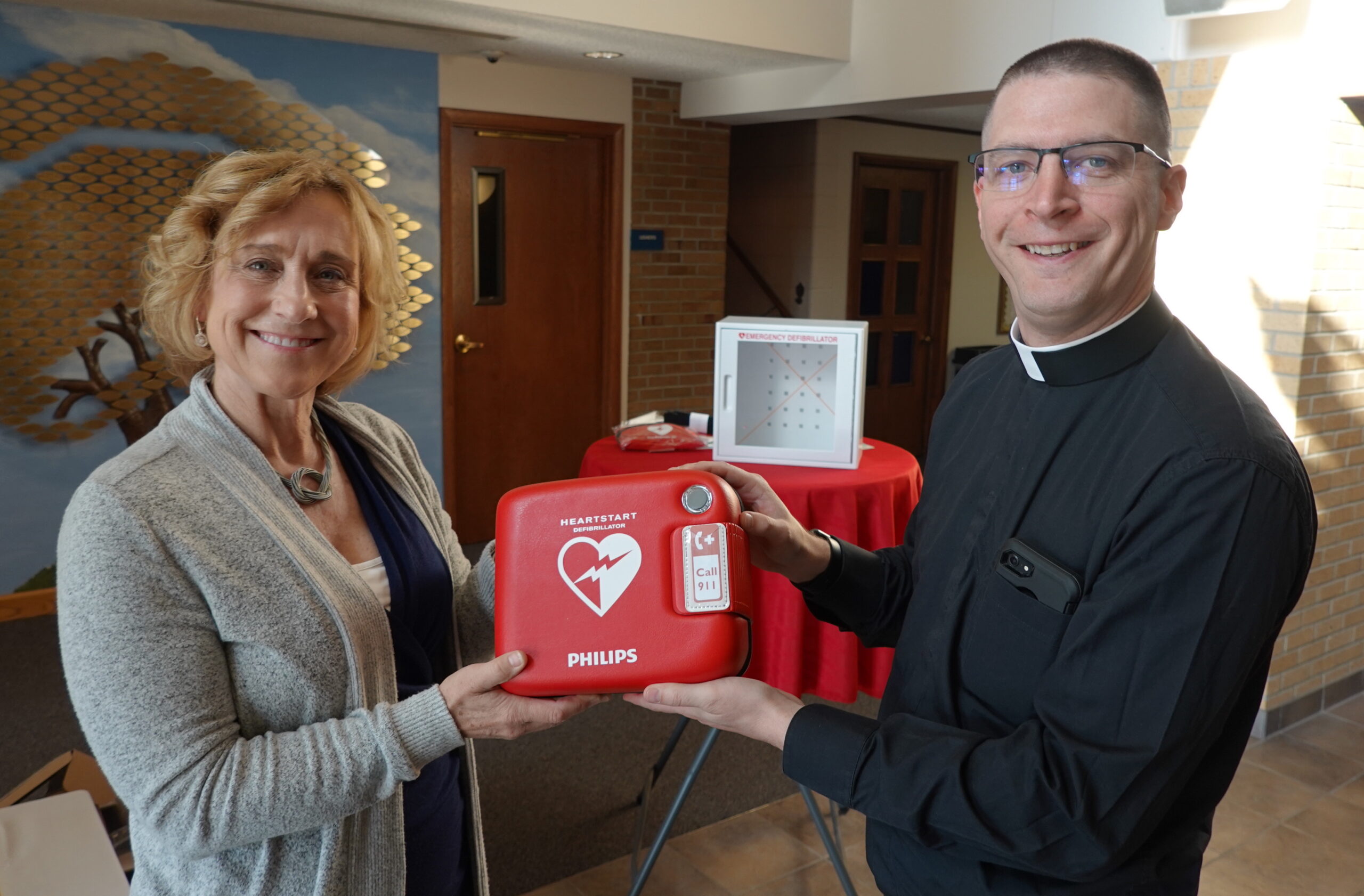UM-Flint's School of Nursing provides lifesaving gift to local church

Parishioners at St. Pius X Catholic Church hold their parish close to their hearts. And now, courtesy of a defibrillator from the University of Michigan-Flint's School of Nursing, they will be able to keep potentially lifesaving assistance just as near.
The gift of the automatic external defibrillator was made possible by a grant from the UM-Ann Arbor Ginsberg Center as part of a larger community outreach effort from the school.
Approximately 10,000 cardiac arrests occur outside the home each year in the U.S. "An AED is a simple device that saves lives, yet they are missing from many of the places that need it the most," said Cynthia McCurren, dean of the School of Nursing. "When a sudden cardiac arrest happens, AEDs can prevent tragedy. There is an increased risk for such tragedy in places where people of all ages congregate, such as churches."
AEDs are portable, life-saving devices designed to treat people experiencing sudden cardiac arrest, a medical condition in which the heart suddenly and unexpectedly stops beating. The AED system includes accessories, such as a battery and pad electrodes, that are necessary for the AED to detect and interpret an electrocardiogram and deliver an electrical shock. There are two main types of AEDs: public access and professional use.
Public access AEDs can be found in airports, community centers, schools, government buildings and other public locations. They are intended to be used by laypeople who have received minimal training. Professional use AEDs are used by first responders, such as emergency medical technicians and paramedics, who receive additional AED training. Units can also be semi- or fully automated and many times can mean the difference between life and death.
"Onsite AEDs save precious treatment time and can improve survival odds because they can be used before emergency medical service personnel arrive," said Kristi Wilson, associate professor of nursing. "Of the sudden cardiac arrest deaths that occur each year, more than 95%of the victims die before they arrive at the hospital."
There is a series of critical events that must take place to ensure the best chance of survival for the victim. It is called the chain of survival.
- Early recognition and call 911.
- Early bystander CPR.
- Early shock with an AED.
- Early life support from health care providers.
The grant from the Ginsberg Center has been utilized outside the church as well. Some of the monies purchased Pickleball supplies for parish members to organize a competitive league filled with good fun and lots of exercise.
The School of Nursing will also keep an occasional onsite presence at the parish via blood pressure screenings throughout the year as the grant allowed for the purchase of four) additional BP cuffs for use by nursing students working in the community.
"This grant allowed us to partner with community groups like churches that have what we would deem a captive audience of sorts," said Wilson. "This is just one example of how SON and the university can initiate and sustain activities that create community wellness."
Related Posts
No related photos.
Brad Brokaw
Brad Brokaw is the communications specialist for the School of Nursing. He can be reached at [email protected].